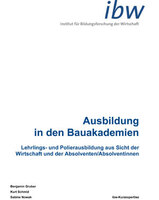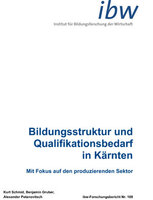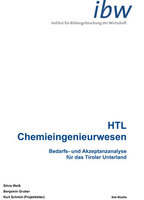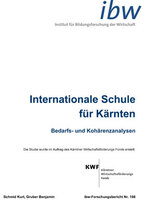Schon ein grober Blick auf die Bildungssysteme von Ländern verdeutlicht deren unterschiedliche Strukturen und Ausgestaltungsformen. Eng damit in Zusammenhang stehen Berechtigungsumfänge von formalen Bildungsabschlüssen. Beide Dimensionen sind gerade für Kinder von international mobilen Arbeitskräften besonders relevant, als sie im Falle eines Schulwechsel in ein anderes Land (und somit in ein anderes Bildungssystem) oftmals beträchtlichen Einstiegsschwierigkeiten gegenüberstehen. Dies betrifft zum einen die Frage der Unterrichtssprache, zum anderen die Frage, auf welcher Stufe sowie in welche Ausbildungsform gewechselt werden kann (und welche bisherigen Bildungswege und -erfolge aus dem Herkunftsland „angerechnet“ werden). Vor diesem Hintergrund ist auch das Potential „internationaler Schulen“ sowie „internationaler Bildungsabschlüsse“ – nicht zuletzt auch im Sinne der Attraktivierung des Wirtschaftsstandortes – zu sehen, da sie einen Schulwechsel zwischen verschiedenen Ländern erleichtern können.
Der aktuelle ibw-Forschungsbericht Nr. 166 (Auftraggeber KWF Kärntner Wirtschaftsförderungs Fonds) beleuchtet das aktuelle Angebot an derartigen Schulformen aus einer gesamtösterreichischen Perspektive. Darauf basierend werden für das Bundesland Kärnten mögliche Etablierungsalternativen aufgezeigt und diskutiert sowie mit Ergebnissen einer Unternehmens- und Eltern-Befragung zu Bedarf, Akzeptanz und inhaltlichen Anforderungen an eine derartige Schule in Beziehung gesetzt.
A mere glance at national education systems reveals their different structures and focuses. These issues are closely associated with the entitlements obtained by holders of formal qualifications. Both of these dimensions are especially relevant for children of the internationally mobile workforce in particular because they often face considerable difficulties when moving to another country, thus switching to another school and education system. On the one hand, their problems are related to the language of instruc-tion, on the other to the question at what level they can change to which educational programme (and for which of their previous educational qualifications and successes from their country of origin they will be granted credits). This is also where the potential benefit of ‘international’ schools and ‘international’ qualifica-tions can be found – not least also by enhancing the attractiveness of business locations1 – as they can make changing schools between countries easier.



